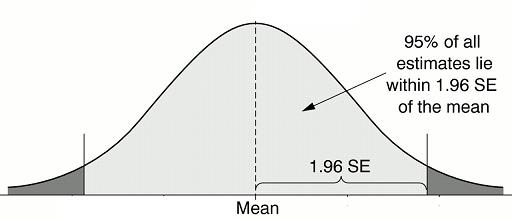One of the best methods of collecting information is carrying out research. When research is carried out explicitly for the purpose of running businesses, it is termed as “business research”. Business research, which is also commonly known as market research, is a process by which business relevant information is collected so as to ensure that the business operations are run intelligently. With the help of business research, existing businesses are able to keep in touch with the ever-changing consumer demands and expectations and adapt accordingly. Typically, business research is aimed at gaining information that is likely to make the business more successful.… Read the rest
Business Research Techniques
The Case Method in Research
Case study method is one of the methods of investigation. Originally case method was used in medicine. The physician used to maintain a record of treatment and health conditions of each patient. Each such record pertains to a ‘case’. The peculiarities of each ‘case’ are known as well as generalities of all cases together. The cause-effect relationship is established and exceptions there to are also noted down.
The basic unit of case study is a case – a particular one of its kind. It may be a single business unit or a whole group of business units in an area or a single producer or a group of producers or a single consumer or a group of consumers and so on.… Read the rest
Significance of Research in Social Sciences
Social sciences refer to business, commerce, demography, psychology, sociology, etc. Social sciences directly involve people. Research in social sciences arena deals with the behavior of people in their different roles, such consumers, competitors, producers, executives, salespersons, leaders, workers, followers, teachers, students, opinion-makers, etc. Research in social sciences deals with the systematic method of discovering new facts or of verifying old facts, their sequence, inter-relationship, casual explanations and the natural laws which cover them.
The importance that social science research wields today is immeasurable and enlarging. As social, business and economic problems abound, the significance of social research gets enhanced as it provides workable solutions.… Read the rest
Standard Error in Hypothesis Testing
The standard error is an indispensable tool in the kit of a researcher, because it is used in testing the validity of statistical hypothesis. The standard deviation of the sampling distribution of a statistic is called the standard error. The standard error is important in dealing with statistics (measures of samples) which are normally distributed.
Here the use of the word “error” is justified in this connection by the fact that we usually regard the expected value to be true value and the divergence from it as error of estimation due to sampling fluctuations. The term standard error has a wider meaning than merely the standard deviation of simple sampling because of the following reasons;
- The standard error is mainly employed for testing the validity of a given hypothesis.
Interview Method of Data Collection in Research
Interview is one of the popular methods of research data collection. The term interview can be dissected into two terms as, ‘inter’ and ‘view’. The essence of interview is that one mind tries to read the other. The interviewer tries to assess the interviewed in terms of the aspects studied or issues analyzed.
Purpose and Importance of InterviewThe main purpose of interview as a tool of data collection, is to gather data extensively and intensively. As Pauline.V Young pointed out that the objectives of the interview may be exchange of ideas and experiences, eliciting of information pertaining to a very wide range of data in which the interviewee may wish to rehearse his past, define his present and canvass his future possibilities.… Read the rest
Extrapolative Forecasting
In extrapolative forecasting we predict the future by extrapolating a historical trend. What has happened in the past determines what is forecast for the future [with other forecasting methods, such as exploratory forecasting, this need not be so. For example, with exploratory forecasting we can explore revolutionary, as well as evolutionary, scenarios]. In some circumstances it is right to use extrapolative forecasting. In other cases different approaches might be more suitable. It is not an appropriate approach to use in a new product/ new business situation, or in situations where circumstances have radically changed, and the past is no guide to the future.… Read the rest



